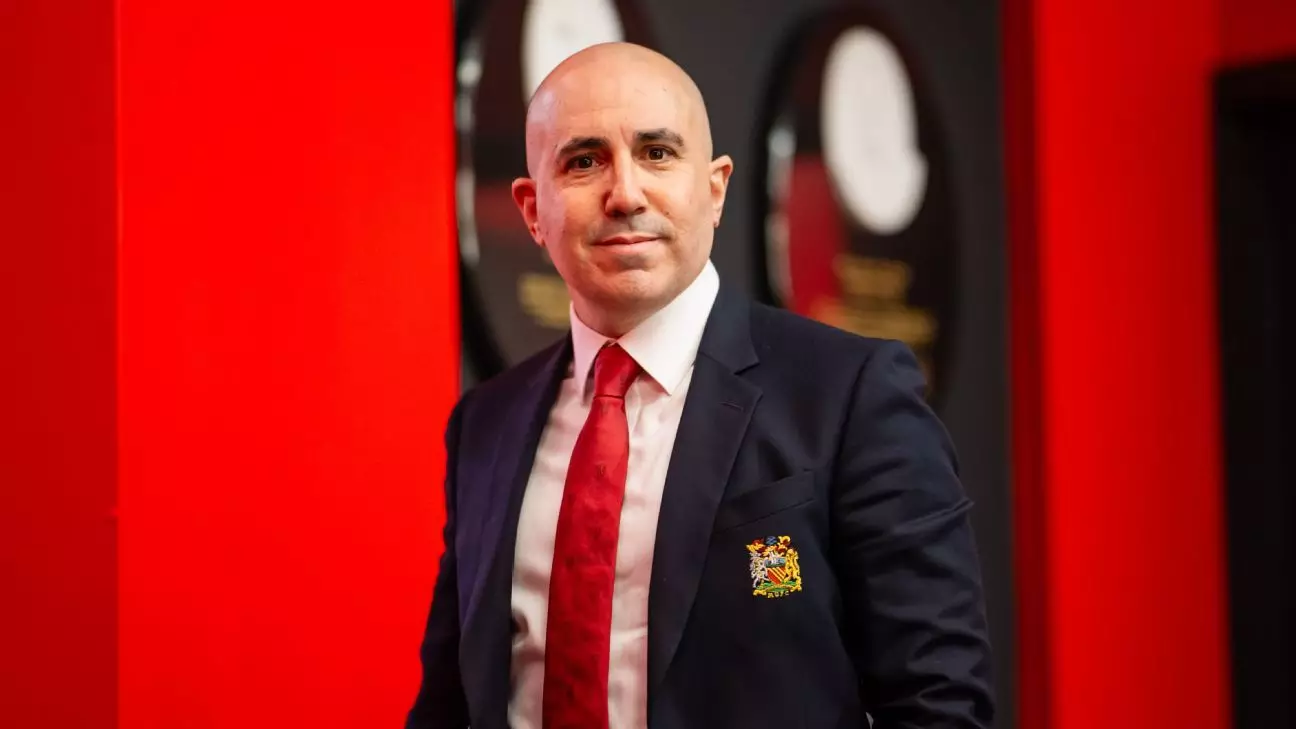In a bold move aimed at reclaiming their status as a powerhouse in both domestic and European football, Manchester United has appointed Ruben Amorim as the new head coach. This decision marks a significant shift for a club that has seen its fortunes decline in recent years. The announcement was made by CEO Omar Berrada, who emphasized the club’s determination to return to the pinnacle of the sport. Amorim’s appointment follows a tumultuous period marked by the club’s disappointing performance under former manager Erik ten Hag, culminating in a lackluster draw against Ipswich Town.
As Amorim steps into the role, he faces a daunting challenge: reviving a team currently struggling in the lower half of the Premier League table. The stakes are high, with the first test awaiting him at Old Trafford in the Europa League matchup against Bodo/Glimt. At just 39, Amorim brings a certain energy and focus from his experience as a head coach at Sporting CP, yet his challenge will not only be to uplift the players but also to win back the faith of the fanbase.
Amidst this coaching change, Manchester United is navigating a complex financial landscape. Sources indicate that Amorim will have to operate within a reduced transfer budget. This limitation arises as the club makes necessary adjustments to comply with the Premier League’s stringent Profit and Sustainability Rules. Furthermore, the club’s strategies are under scrutiny following Sir Jim Ratcliffe’s minority stake acquisition, which has prompted significant redundancies aimed at controlling expenses.
The financial repercussions of terminating Ten Hag’s contract and onboarding Amorim will be closely monitored in the forthcoming financial quarter results. Berrada has addressed these financial shifts, underscoring ongoing efforts to minimize costs and enhance revenue through various initiatives.
Progress on Infrastructure and Future Outlook
Beyond the coaching and player dynamics, United is also investing in essential infrastructure projects. The renovation of the Carrington Training Centre is progressing, and the Old Trafford Regeneration Task Force is actively reevaluating the club’s stadium and facilities. Berrada acknowledged that these developments are pivotal for the club’s long-term strategy as they look to modernize and improve their operational capacity.
Despite a reported adjusted net loss of £349,000 in the first quarter of fiscal 2025, there is a certain optimism buoyed by cost-cutting measures and favorable exchange rates. Revenue, although down by 9% to £143.1 million, is still within the forecasts set for the fiscal year. The club seems poised to rebound, provided Amorim can harness his tactical acumen to transform the team’s performance on the pitch.
The overarching goal remains clear for Manchester United: a return to competitive supremacy in both league and international play. The task ahead is monumental, but with Amorim at the helm, the hope is that the club’s storied legacy will soon be revived. As fans eagerly await the unveiling of his strategic vision, the football world watches closely, curious to see if Manchester United can indeed rise from the ashes under fresh leadership.

